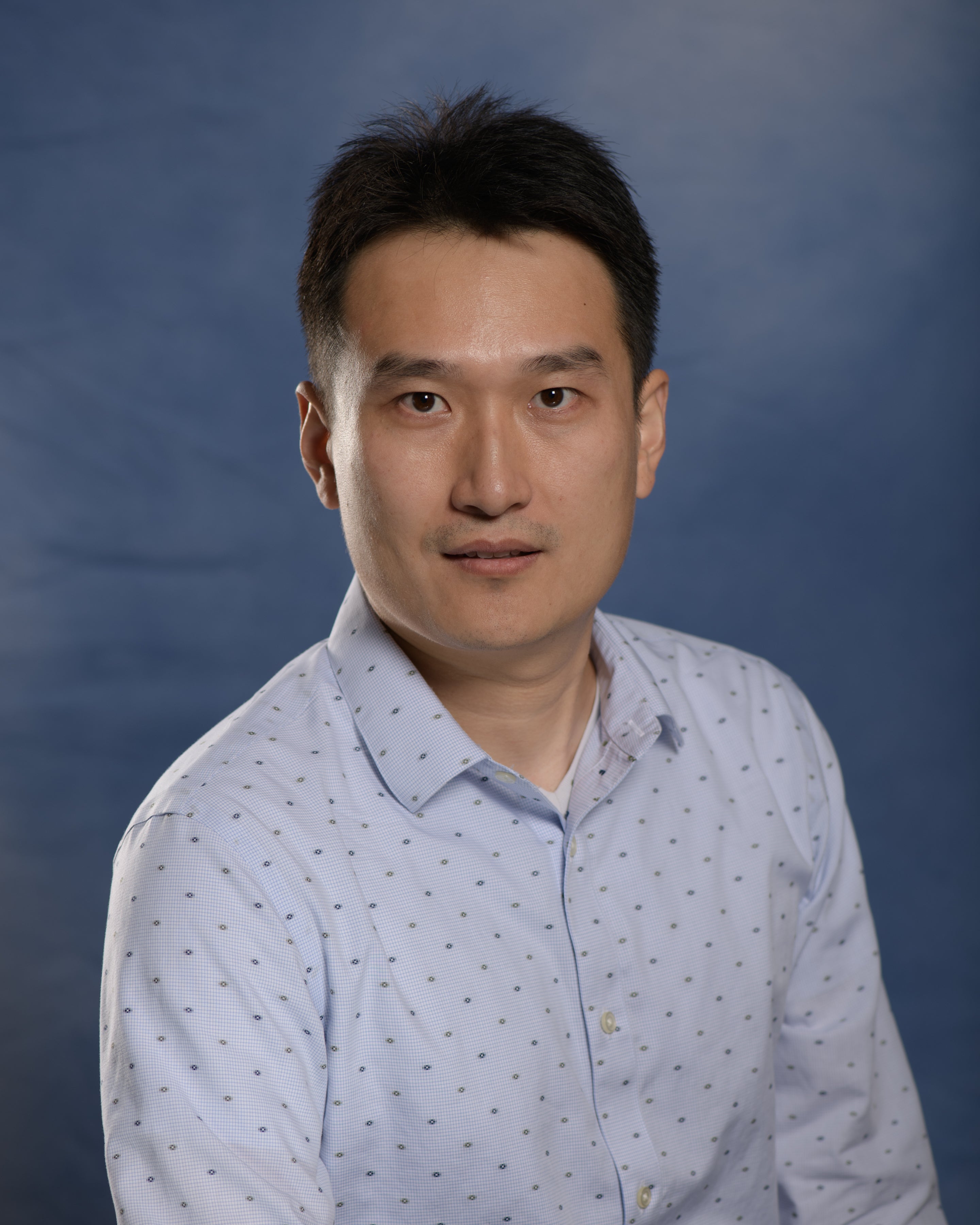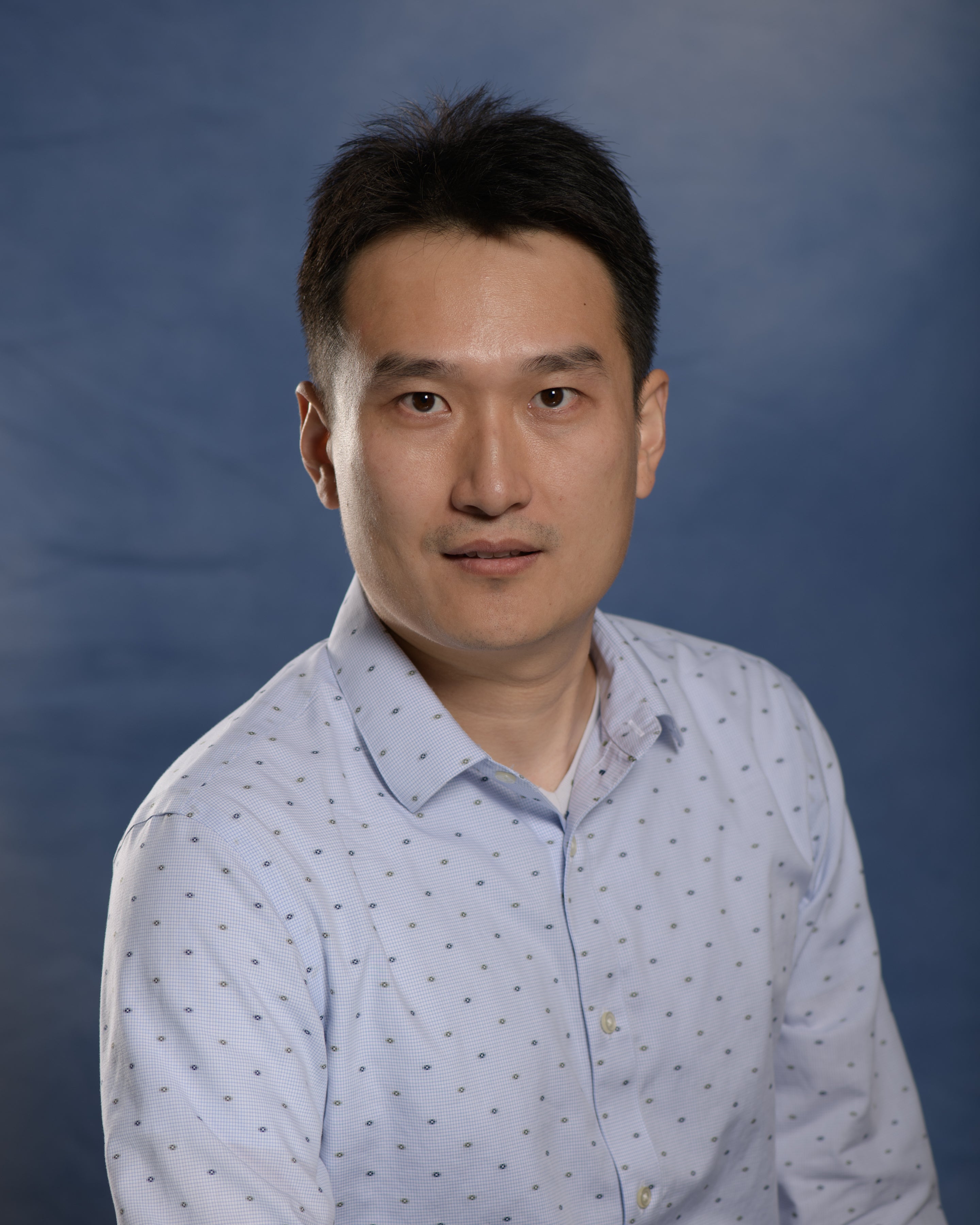

Hannah Holscher, PhD, RD, is an Associate Professor of Nutrition in the Department of Food Science and Human Nutrition and the Division of Nutritional Sciences. She also has affiliate appointments with the Institute of Genomic Biology (IGB), the National Center for Supercomputing Application (NCSA), and the Family Resiliency Center.Research in Dr. Holscher’s laboratory, the Nutrition and Human Microbiome Laboratory, uses clinical interventions and computational approaches to study the interactions of nutrition, the gastrointestinal microbiome, and health. Her creative use of machine learning approaches to determine microbial biomarkers of food intake and human health status resulted in her recognition as a 2017 New Innovator in Food and Agricultural Research and a 2020 National Academy of Medicine Emerging Leader. Recently she received the 2021 American Society for Nutrition’s Mead Johnson Young Investigator Award for her series of work on nutrition and the human microbiome.

Ruoqing Zhu, PhD, is an Assistant Professor in the Department of Statistics, IGB, NCSA, and the Carle Illinois College of Medicine. Research in Dr. Zhu’s group focuses on statistical learning, machine learning, and their applications to biomedical studies. His group works closely with collaborators in the field of infectious disease, microbiome, and cancer and develop novel statistical machine learning models to address difficulties in these biomedical areas. Dr Zhu completed his PhD at UNC Chapel Hill, where he worked on developing random forest models and theories for high-dimensional and complex data. During his postdoc at Yale University, he focused on genetic and genomic analysis, and developed personalized treatment strategies using genetic data.
Drs. Holscher and Zhu’s latest collaborative publication focused on machine learning helps researchers identify bacterial biomarkers to determine food intake. They have also recently published work on estimating heterogeneous treatment effects.
What is your collaborative research in personalized nutrition about?
We are interested in understanding how the gut microbiome mediates and moderates an individual’s response to nutritional interventions. For example, we are investigating key microbes that help a person ‘respond’ to walnut consumption to lower their cholesterol? Another key focus of our work has been using microbial biomarkers to predict food intake. Since dietary records have limitations, there is a need to develop objective biomarkers of food and nutrient intake. Our work helps to fill this need.
How did you learn about each other’s research and how did you start collaborating?
We met back in 2016 when we were both new assistant professors looking for collaboration opportunities. At that time, we were both just starting to collaborate with Colleen Bushell at the Illinois Research Park (Colleen and her team have now joined NCSA) for data analytic problems. So, Hannah brought a microbiome problem to Colleen, and Colleen thought Ruoqing would fit that project well with his statistical expertise. And the three research teams have been collaborating ever since.
How are you conducting your collaborative research in personalized nutrition?
Hannah and her research team conduct nutrition intervention studies where they collect biological and behavioral data from participants participating in feeding studies. Key measures in these studies include microbiome and metabolome data as well as a range of health status measures. When all the data are integrated, the data structure is complex. Also, many of the studies use different designs, like crossover vs. parallel arm designs, which require additional considerations. We have weekly meetings to discuss the analysis plan of these data and develop new approaches that could address various statistical issues such as overfitting, confounding, batch effects, etc.
What do you do to continue grow your collaborative research relationship?
We have consistent meetings and discussions to generate new ideas and approaches to solve research problems we are both interested in. Our NCSA faculty fellowships also played a key role in supporting our collaborative efforts. Most recently, we’ve been focusing our efforts on writing manuscripts and submitting grants together to continue to support our collaborative research.
What are some challenges with collaborating across disciplines and what have you found to be effective at building a stronger and productive collaboration?
Ruoqing: For me, understanding the data collection procedures and the background biology was a big part of the challenge. Same as any collaboration, it requires literature reading to understand the concepts, terminology, thought processes and concerns from the biological side to come up with meaningful statistical approaches.
Hannah: One of the major hurdles is communication. The same term can be used differently across fields, and that causes confusion. Building a strong and productive collaboration requires open communication and a willingness to keep asking questions. Our collaboration has made everyone on the team better because we are challenged to think of different ways to explain our science and where we want to go next in terms that are understandable to experts outside our field of study.
How do you think that being a part of the Personalized Nutrition Initiative community will support and enhance your research?
Ruoqing: My main research area is personalized medicine. The methods that have been traditionally developed and used in pharmaceutical research can also be applied to personalized nutrition. However, there are also new challenges because nutrition and food intake can have a much greater variability and it is also a long-term process rather than taking drugs, which is done in a short period of time. This requires new theoretical and methodological development in statistics and machine learning. Being involved in the personalized nutrition initiative, I have the chance to communicate with leading experts in this area and understand the practical need in this field. This will motivate my own statistical research and have the chance to apply them in real applications.
Hannah: I am very excited that the Personalized Nutrition Initiative is establishing a community of researchers with complementary skills and interests. Getting the group together to talk about their science and how it could be applied across fields will help spur new ideas that can be undertaken together. I have already learned so much from the group by working together this past spring to submit an NIH grant proposal. I am looking forward to future networking events and funding opportunities that will help move the field of personalized nutrition forward.
What is the long-term goal of your research in this area?
We are working with an interdisciplinary team of researchers across campus through the Personalized Nutrition Initiative on grant proposals in the area of personalized nutrition for precision health, this work is co-led by Drs. Sharon Donovan and Saurabh Sinha. There are many new ideas involved, such as new data collecting strategies and applying some of our recently developed analysis tools. For example, we are looking forward to expanding our analytic approaches to better understand how the microbiome can be leveraged to help predict nutrient intake and personalized health trajectories.
Do you have a personal story to share or path that led to your interest in this area of study?
Ruoqing: Back to when we were still at the Research Park (it was probably our first meeting), I asked Hannah why broccoli is related to cancer incidence. She explained to me that, because humans cannot directly digest some of the substances in broccoli, we rely on enzymes from some bacteria to break down these ingredients (glucosinolates, I still cannot pronounce many of these fancy words) for us. And during that process, chemical compounds are produced, which were found to be associated with reduced cancer incidence. That “host-microbe interaction” was quite an interesting dynamic to me, so I got interested in this area.
Hannah: Learning about the microbiome during graduate school and my postdoctoral training inspired me to think more holistically about nutrition. I found topics on microbial ecology and host-microbe interactions to be fascinating. This spurred my interest in approaching nutrition problems from a more systematic level instead of focusing on just one nutrient or just one health outcome. This has been rewarding because it’s allowed me to build great collaborations and friendships with scientists across disciplines.
[Originally published in the July 2021 Personalized Nutrition Initiative Newsletter]